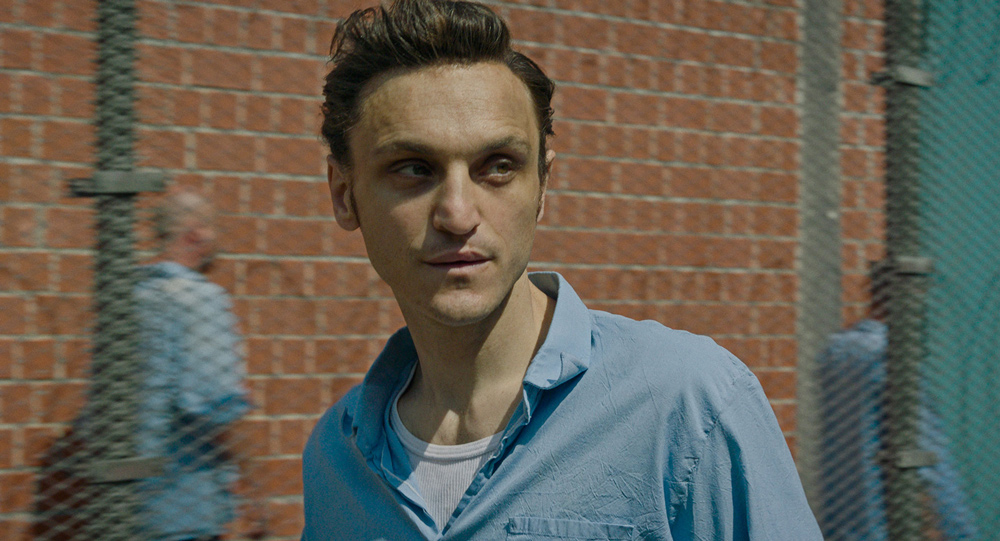!["Great Freedom" Directed by Sebastian Meise Why should it be a movie? [Director's Interview Vol.330]](https://cinemore.jp/images/c60b6dc0de8df40c763239b818219c8f0bf8f9c6b496a98476f95b2892633e4e.jpg)
©2021FreibeuterFilm•Rohfilm Productions
"Great Freedom" Directed by Sebastian Meise Why should it be a movie? [Director's Interview Vol.330]
Article 175 of the German Criminal Code. A criminal law enacted in 1871 that prohibits male homosexuality. It was harshly punished during the Nazi era, and was carried on in East and West Germany after the war. In West Germany, homosexuality was decriminalized for men over the age of 21 in 1969, and it was finally abolished in 1994. It is said that 140,000 people were punished over the course of about 120 years.
The movie ``Great Freedom'' depicts a man who spends most of his life in prison due to this criminal law. This film carefully depicts the 20-plus year struggle of a man who continued to seek the "freedom to love," moving back and forth through three eras: 1945 after the end of the war, 1957 when he was imprisoned with his lover, and 1968 when the Penal Code reform was announced. Draw it out. Even though most of the film takes place in the confined space of a prison, it carefully weaves life and love and confronts the viewer with harsh facts. How did director Sebastian Mize create this masterpiece? I spoke to him.
*Article 175 of the Penal Code only targets men, and the existence of female homosexuality was denied, so it was not explicitly stated as illegal.
"Great Freedom" synopsis
In post-World War II Germany, under Article 175 of the Penal Code, which prohibits male homosexuality, Hans is repeatedly imprisoned because of his sexual orientation. Viktor, a prisoner in his cell, hates him and tries to push him away because he is a ``Article 175 violator,'' but from the number carved on his arm, he learns that Hans was sent directly to prison from a Nazi concentration camp. Hans is a "stubborn" man who never bends and is put in a punishment cell many times, and Victor, who knows how to behave in prison after serving a long term in prison. The relationship between the two started out as repulsion, but over many years it turned into a bond of mutual respect.
Index
To depict a trapped existence
Q: It boasts an overwhelming level of perfection and has a Arrival that touches the hearts of viewers. Did you ever imagine from the beginning that such a great movie would be created?
Mize: I couldn't have imagined it at all when I was making the film, but I had a strong desire to make this work and believed in this story. Also, when it comes to filmmaking, unexpected things happen. Even though there was about half of the shooting left, the shooting was stopped due to the coronavirus. Everything came to a standstill and I was running out of money. But in filmmaking, even if something goes wrong, you can solve it creatively. Since filming was stopped due to the coronavirus, I was able to spend more time editing. That's what led me to this work. No matter the situation, if you approach it with an open mind, you will receive a wonderful gift from heaven (lol).
However, Franz Rogowski, who played Hans, seemed to have a tough time. I gained back the weight I lost while preparing for the role during the coronavirus break, and I had to lose weight again in preparation for resuming filming.

“Great Freedom” ©2021FreibeuterFilm•Rohfilm Productions
Q: The relationship between Hans and Victor slowly develops over a long period of time, spanning the ages. How was the script created?
Mize: The first draft was about Hans' life as a whole. We researched many people and created a biography of Hans. At first, we included events that happened outside the walls, but even if he went outside, he would be caught immediately. After all, it's the same as a life sentence. In that case, it would be easier to express the feeling of being a prisoner if you only depict the inside of the prison. That's why I decided to use a prison as the main setting.
Also, by dividing the era into three periods, you can create the feeling of being stuck in a time loop and unable to escape. The darkness of the cell is like a warp hole, into which you are sucked in and exhaled into another era. I was able to portray him as a truly trapped being.
On the other hand, Victor is serving a life sentence for taking someone's life, but like Hans, his life has been condemned. The relationship between Victor and Hans slowly develops over a period of 25 years. At first, they were unaware of each other, and never dreamed that a relationship would arise in their lives. By following them all the time, I was able to depict the changes in their feelings.

